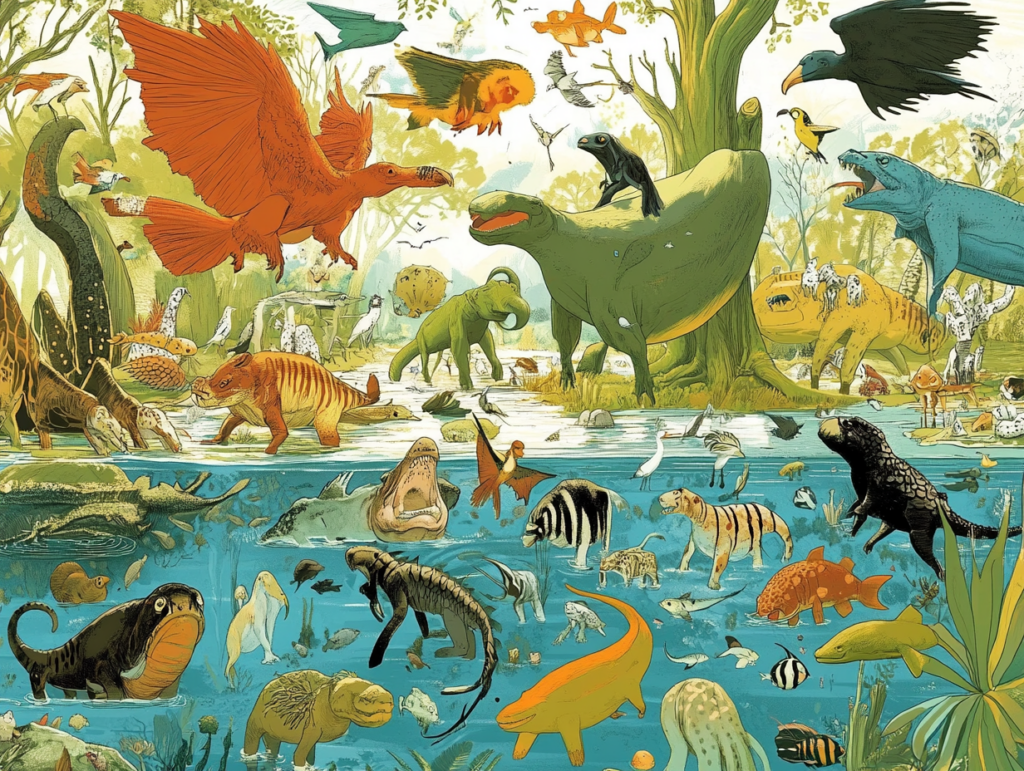It feels odd to have to make these arguments for diversity, again, some centuries after the Enlightenment. And centuries after Darwin, in whose name many fallacious opposite “interpretations” are levied. But apparently we must say it: diversity is good, actually.
The evidence is there for us as it has always been. Diversity isn’t a bad thing — it’s almost universally a good thing. For populations, for economies, for problem solving — for all of us. The more options there are, the higher probability that one of them might be the right match, or the thing that solves the problem, or the best selection for the job at hand.
In economics, Modern Portfolio Theory is based on the formal proof that diverse portfolios are stronger and more resilient to risk without sacrificing returns. So there’s a strict mathematical component to the arguments for diversity, but beyond that many other fields have also weighed in on the utility and pragmatic value of diversity. This assortment is a work in progress I’ll continue to add to over time:

- In biology, more diverse populations are more responsive and resilient to a wider variety of changes. This resilience is one of the best arguments for diversity of all.
- The best investment portfolio is the one that is most diversified. Harry Markowitz developed a mathematical proof to discover this now near-universal paradigmatic approach (MPT) in the 1950s.
- In business, a diversity of new ideas leads to better decision-making and increased innovation; studies show a diverse workforce, as well as a diverse board, nets better results and outperforms their more conformist cousins. Conversely, too much groupthink and stale ideas lead to worse outcomes and less resilient firms.
- Cross-pollination is generative, and the blending of ideas creates new concepts, new opportunities, new industries, and new trends — to name a few.
- Range adds resilience — developing a broad range of skills and experiences help you adapt to constant change and grow in your career
- Condorcet jury theorem: the more informed people there are making a decision, the more right it will be. Plurality makes better decisions. See also: wisdom of crowds
- Law of large numbers: the more data points you have, the more accurate your distribution will be.
- A large number of independent transactions helps economies function properly and grow. We speak of the economy “moving” and finding many touchpoints to do business on.
- A lack of diversity can lead to poor outcomes, such as in echo chambers where people are not exposed to different points of view, and develop insular views that are self-reinforcing but usually divorced from reality.
- Freedom produces diversity, by its very nature — and we do love our freedoms now, don’t we?
Diversity unhinges us because it unmasks our hidden assumption that if we all look the same, we will think the same and thereby avoid conflict.
Deep down, we still secretly hope that we can avoid having to deal with our differences by magically generating conformity.
Our unspoken wish is that, by being identical, we achieve the harmony and collective togetherness we so deeply crave — the collective harmony we mistake for God. In our zeal to commune with god, we instead are far more likely to fall victim to the pitfalls of collective narcissism and all the destructions it wreaks.
Diversity outcompetes monoculture
The opposite of diversity is monoculture… and inbreeding. Monoculture represents sameness, stasis, and stagnation — the system or culture feels fairly dull and stale.
Most people like a certain level of variety in their lives. Some though, have great aversion to difference, change, or both. Authoritarian personalities tend to dislike difference, while individuals with traditional conservative ideology tend to dislike change.

One of the more relatable arguments for diversity stems from the fact that a majority of people enjoy and benefit from diverse points of view, experiences, community members, and beyond. We love to eat different foods, travel to different places, and engage in different pasttimes. And our lives are enriched because of it.
Diversity ought to be celebrated, not denigrated. In many ways it is the very stuff of life — something that helps make life precious and meaningful.
Comments are closed.